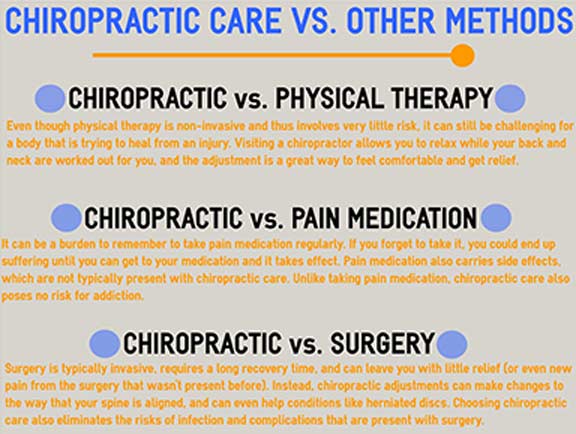The Impact Of Diet Regimen On Pain In The Back Administration: Foods To Incorporate And Foods To Exclude
The Impact Of Diet Regimen On Pain In The Back Administration: Foods To Incorporate And Foods To Exclude
Blog Article
Authored By-Russo Guldborg
When it involves managing your pain in the back, the food options you make can dramatically impact just how you really feel each day. Picture being able to relieve your discomfort simply by readjusting what you consume. By comprehending the function of nutrition in neck and back pain monitoring and understanding which foods to integrate or stay away from, you can take aggressive steps towards a much healthier and extra comfortable way of living. The link between nourishment and back health and wellness is more profound than you might recognize-- let's check out how specific foods can either soothe or worsen your pain in the back.
Importance of Nutrition in Back Pain
Nutrition plays a vital function in managing neck and back pain. cupping therapy brooklyn can considerably impact swelling degrees and total pain degrees in your back. Eating a well balanced diet plan abundant in nutrients like vitamins D and K, calcium, magnesium, and omega-3 fatty acids can help in reducing inflammation and reinforce bones, which are necessary for back health.
Additionally, maintaining a healthy and balanced weight through appropriate nutrition can reduce anxiety on your spinal column, lowering the threat of pain in the back.
In addition, specific nutrients like anti-oxidants located in fruits and vegetables can help battle oxidative stress and promote healing in the body, consisting of the back muscle mass and spinal column.
On the other hand, taking in too much amounts of refined foods, sweet beverages, and unhealthy fats can contribute to inflammation and weight gain, intensifying back pain.
Foods to Consume for Back Health
To support a healthy and balanced back, integrating nutrient-rich foods into your daily dishes is essential. Including foods high in anti-oxidants like berries, spinach, and kale can help reduce swelling in your back, alleviating pain and discomfort. Omega-3 fatty acids discovered in fatty fish such as salmon and mackerel have anti-inflammatory buildings that can profit your back health.
Furthermore, taking in nuts and seeds like almonds, walnuts, and chia seeds gives important nutrients like magnesium and vitamin E, which support muscle mass function and lower oxidative anxiety. Integrating lean healthy proteins such as hen, turkey, and tofu can aid in muscle mass repair and maintenance, promoting a strong back.
Don't fail to remember to consist of dairy products or fortified plant-based options for calcium to support bone wellness. Lastly, moisturize with lots of water to keep your spine discs moistened and operating efficiently. By including these nutrient-dense foods in your diet, you can nourish your back and support total back health and wellness.
Foods to Stay Clear Of for Back Pain
Choose avoiding processed foods high in added sugars and trans fats when looking for relief from back pain. These kinds of foods can add to swelling in the body, which may aggravate back pain. Say no to linked here treats like candy, pastries, and sweet drinks, in addition to junk food things like burgers, fries, and fried chicken that are frequently packed with trans fats.
In addition, steer clear of foods including high levels of polished carbohydrates, such as white bread, pasta, and breads, as they can surge blood sugar levels and potentially get worse swelling in the body.
It's also a good idea to limit your consumption of foods high in hydrogenated fats, like red meat and full-fat dairy products, as they can contribute to inflammation. Processed foods like deli meats, chips, and packaged treats are often high in saturated fats and should be consumed in small amounts.
Final thought
In conclusion, taking note of your diet regimen and making wise food options can have a significant effect on handling pain in the back. By including nutrient-rich foods like berries, fatty fish, nuts, and lean healthy proteins, and preventing refined and sweet things, you can help reduce swelling and support overall back health and wellness. Remember, what you eat plays an essential function in just how you really feel, so ensure to prioritize your nourishment for a healthier back.
